- Voice
- Keyboard
- String
- Woodwind
- Brass
- Library
N°4 Wiegenlied
1868
Piano + Various instruments
Arranged by Frédéric CELLIER
Duration ≃ 01:30
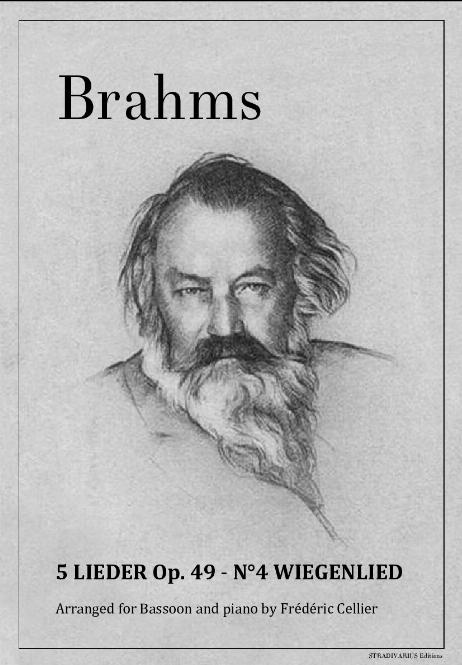
SCORE Bassoon and piano
PDF - 3 pages
PART Bassoon
PDF - 1 page
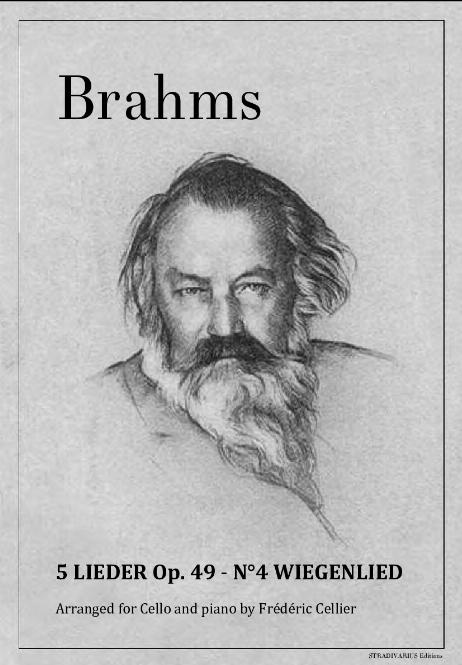
SCORE Cello and piano
PDF - 3 pages
PART Cello
PDF - 1 page
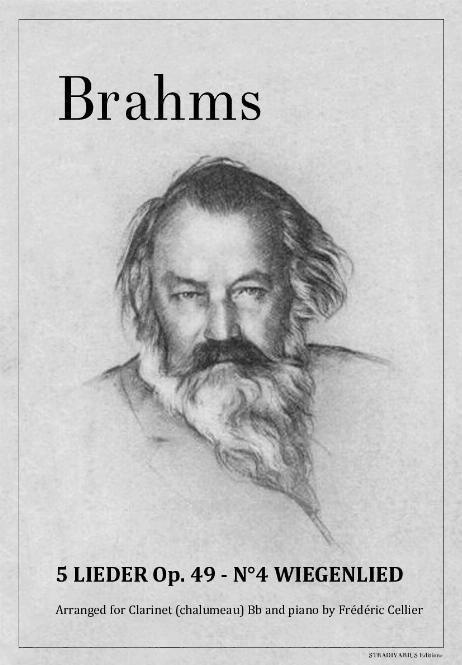
SCORE Clarinet Bb (chalumeau) and piano
PDF - 3 pages
PART Clarinet Bb (chalumeau)
PDF - 1 page
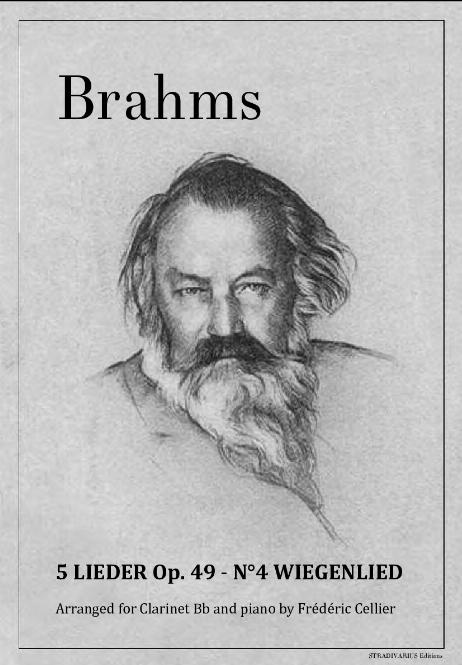
SCORE Clarinet Bb and piano
PDF - 3 pages
PART Clarinet Bb
PDF - 1 page

SCORE Double bass and piano
PDF - 3 pages
PART Double bass
PDF - 1 page
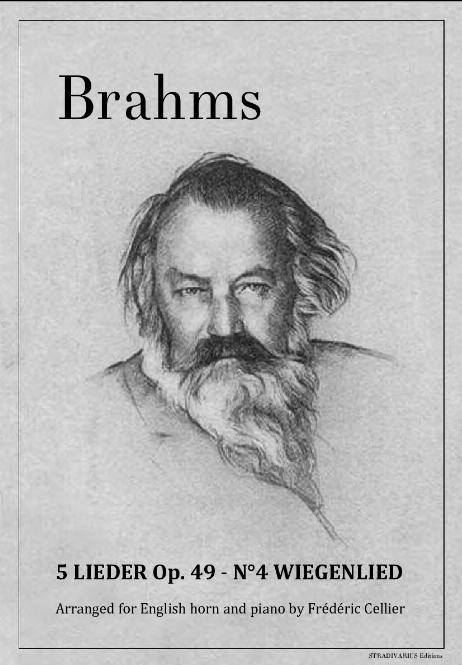
SCORE English horn and piano
PDF - 3 pages
PART English horn
PDF - 1 page
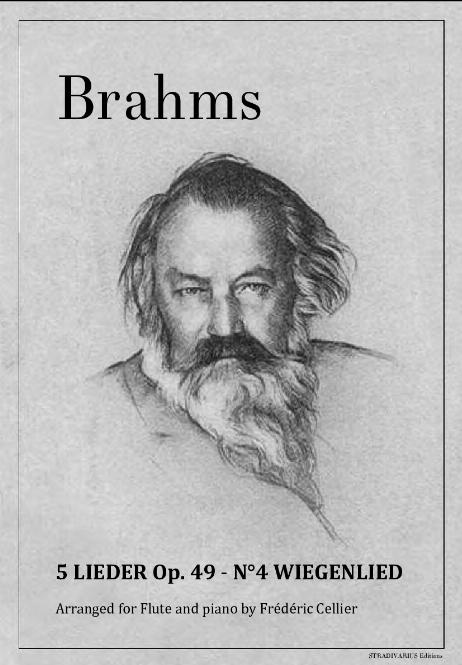
SCORE Flute and piano
PDF - 3 pages
PART Flute
PDF - 1 page
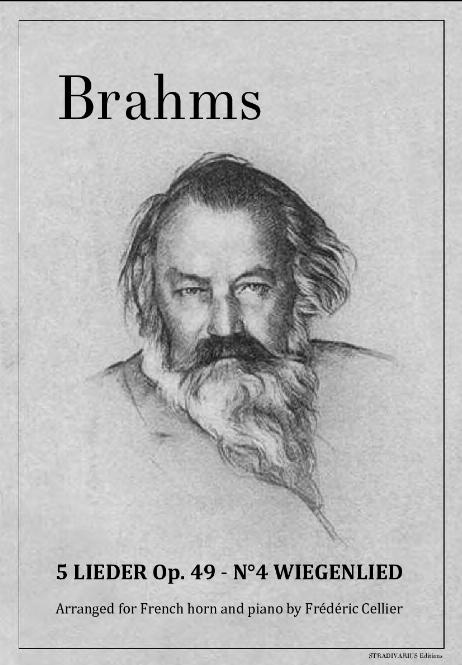
SCORE French horn F and piano
PDF - 3 pages
PART French horn F
PDF - 1 page
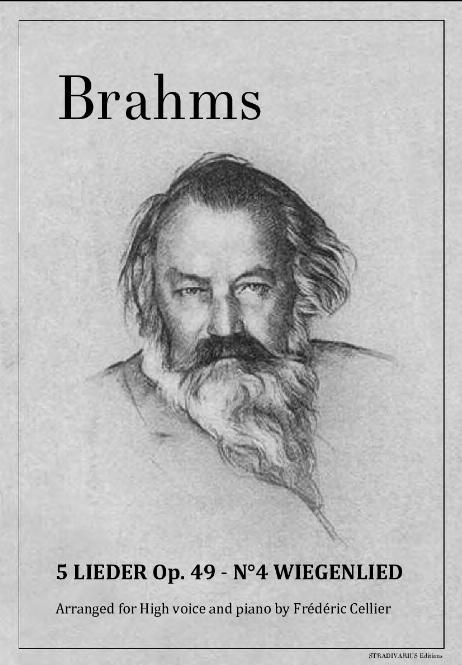
SCORE High voice and piano
PDF - 3 pages
PART High voice
PDF - 1 page
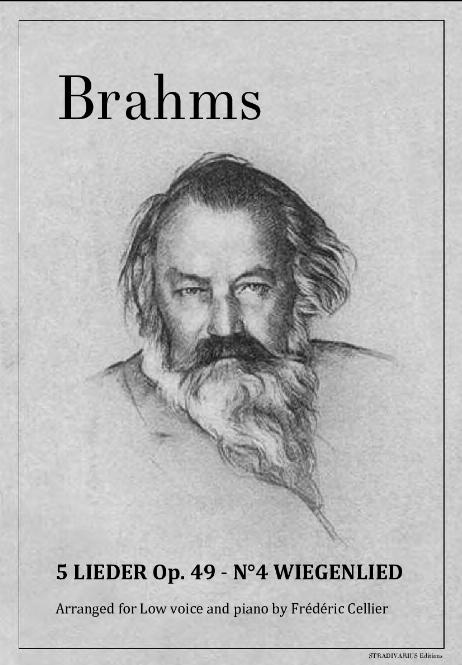
SCORE Low voice and piano
PDF - 3 pages
PART Low voice
PDF - 1 page
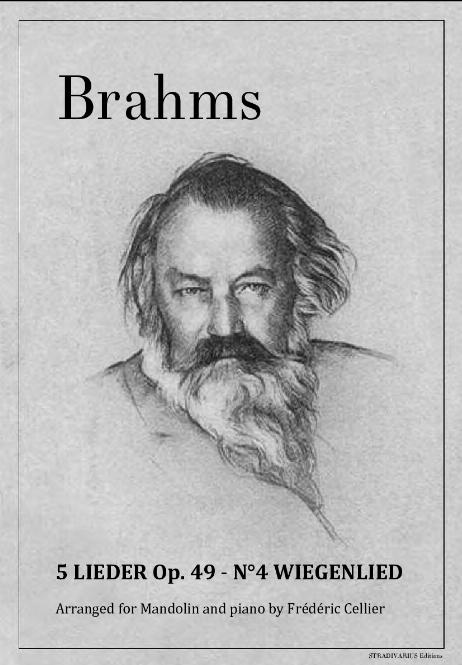
SCORE Mandolin and piano
PDF - 3 pages
PART Mandolin
PDF - 1 page
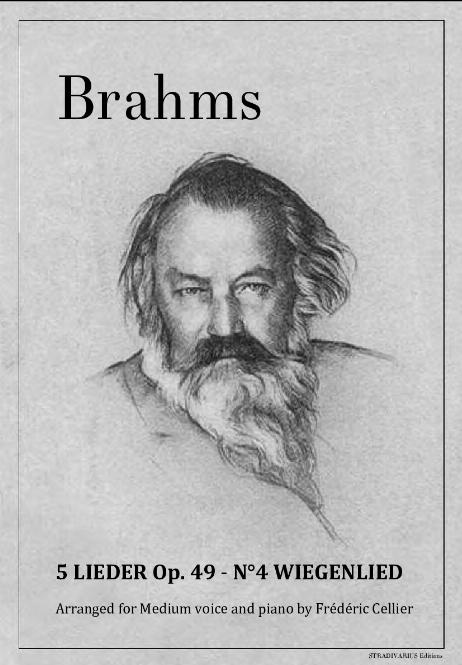
SCORE Medium voice and piano
PDF - 3 pages
PART Medium voice
PDF - 1 page
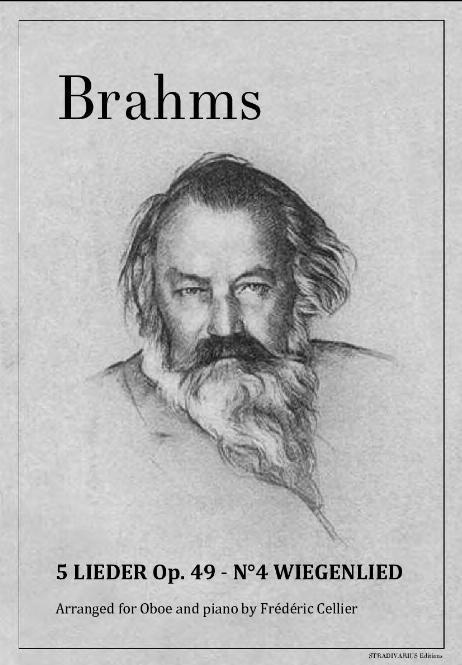
SCORE Oboe and piano
PDF - 3 pages
PART Oboe
PDF - 1 page

SCORE Recorder and piano
PDF - 3 pages
PART Recorder Soprano/Tenor
PDF - 1 page
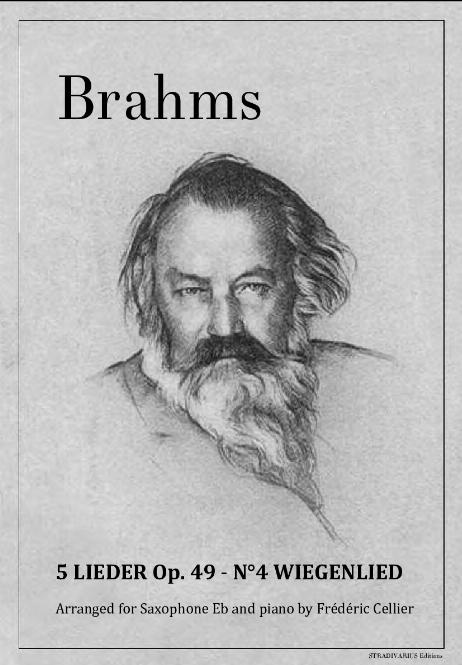
SCORE Saxophone Eb and piano
PDF - 3 pages
PART Saxophone Eb
PDF - 1 page
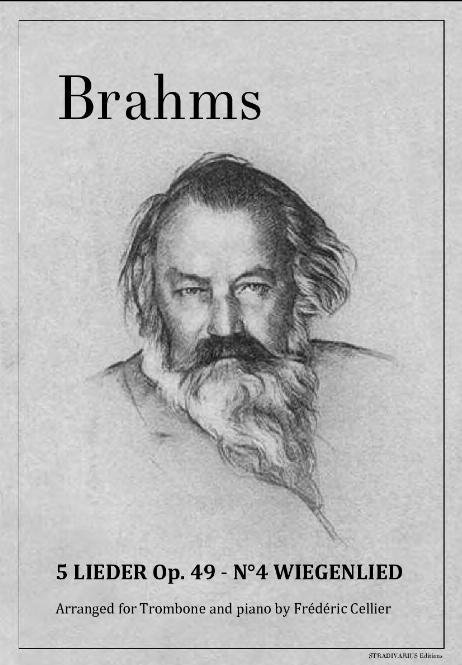
SCORE Trombone and piano
PDF - 3 pages
PART Trombone
PDF - 1 page
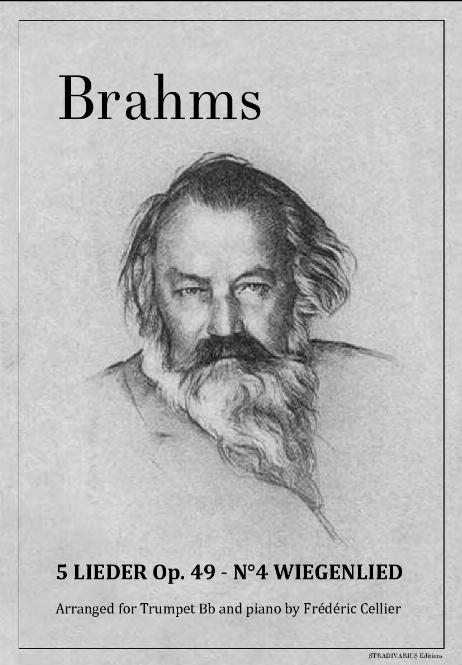
SCORE Trumpet Bb and piano
PDF - 3 pages
PART Trumpet Bb
PDF - 1 page

SCORE Trumpet C and piano
PDF - 3 pages
PART Trumpet C
PDF - 1 page
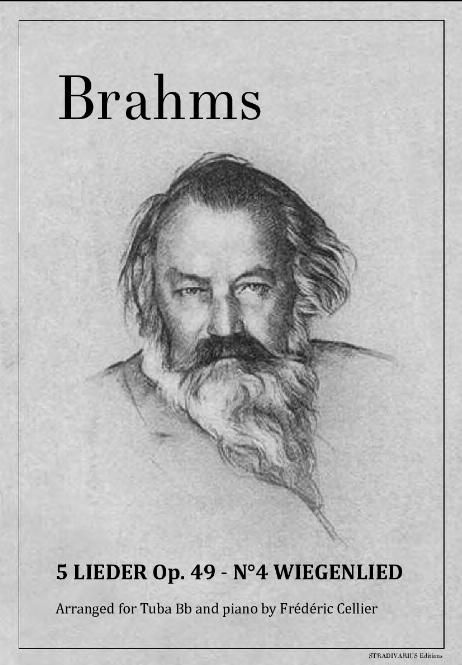
SCORE Tuba Bb and piano
PDF - 3 pages
PART Tuba Bb
PDF - 1 page
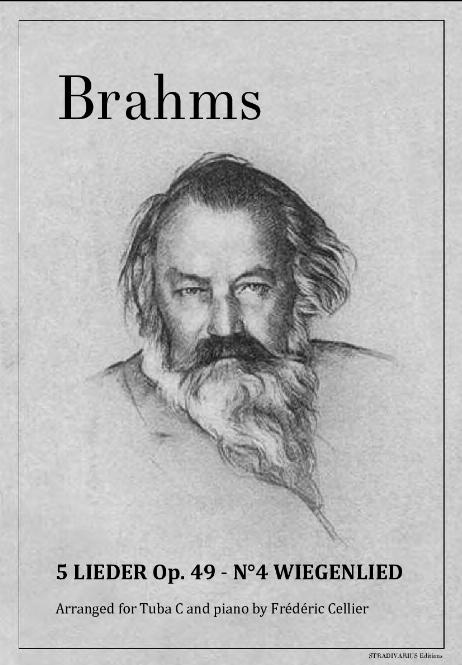
SCORE Tuba C and piano
PDF - 3 pages
PART Tuba C
PDF - 1 page
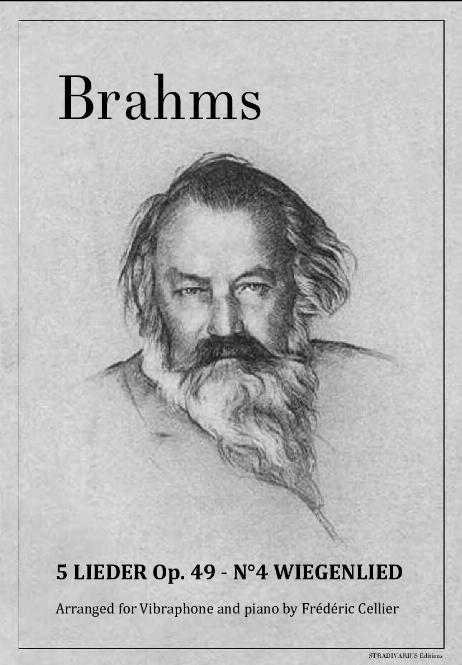
SCORE Vibraphone and piano
PDF - 3 pages
PART Vibraphone
PDF - 1 page
This lullaby is undoubtedly the best-known melody in Brahms's oeuvre. Who hasn't heard it in their childhood? It was first performed by Brahms's friend Bertha Faber for her son's birthday. The first verse of the text is taken from a collection published between 1805 and 1808: Des Knaben Wunderhorn [The Children's Magic Horn], which brings together nearly a thousand German folk songs, some of which date back to the Middle Ages. The second verse was written in 1849 by Georg Sherer. Guten Abend, gut’ Nacht, mit Rosen bedacht, mit Näglein besteckt, schlupf' unter die Deck ! Morgen früh, wenn Gott will, wirst du wieder geweckt. Guten Abend, gut’ Nacht, von Englein bewacht, die zeigen im Traum dir Christkindleins Baum. Schlaf nun selig und süß, schau im Traum's Paradies. Good evening, good night, watched over by roses covered with cloves, slip under the duvet! Tomorrow morning, God willing, you will wake up again. Good evening, good night, guarded by little angels, who show you in your dreams the tree of the baby Jesus: sleep now, blissfully and sweetly, look into the dreams of Paradise. This lullaby is very simple: its melody, identical for each verse, is composed of two phrases, each of which is composed of two parts. But the piano accompaniment is subtle and delicate, and the syncopated chords of the right hand provide a rocking motion conducive to lulling. Another inseparable aspect of the lullaby is repetition: here, each verse is repeated twice, and within each verse, the last two lines are also repeated.
Johannes Brahms was a German composer and pianist of the Romantic period, who wrote symphonies, concerti, chamber music, piano works, choral compositions, and more than 200 songs. Brahms was the great master of symphonic and sonata style in the second half of the 19th century.
Along his university studies (DEA in musicology, University of Paris IV-Sorbonne), Frédéric Cellier was awarded three first prizes and a development prize at the CNR of Nice and won first prize at the International Competition of Musical Execution - soloist category – of Stresa (Italy). He is the laureate of the Fondation de France and the Yehudi Menuhin Foundation and accredited teacher at the CNR of Nice, the CNR of Marseille, and at the CRR Olivier Messiaen of Avignon (France). Frédéric Cellier is the interpreter of Francis Poulenc’s Sonata for clarinet Bb and piano with Jean-Michel Damase, Jean Françaix or Gabriel Tacchino, but also performs his own version for clarinet, piano and string orchestra of George Gershwin’s Rhapsody in blue for Wynton Marsalis or under the baton of Adrian Gershwin, grandson of the composer. Founder and artistic director of STRADIVARIUS Editions, he is the author of pieces of light music and a considerable number of arrangements in all styles and for all instruments acclaimed by numerous personalities in the music world: "Frédéric Cellier has produced a number of adaptations of Georges Auric's works with such talent and precision that I consider them a natural addition to his chamber music catalogue." Michèle AURIC - Georges Auric's widow "To Frédéric Cellier, excellent musician and tireless arranger." Jean FRANÇAIX - Composer and pianist "Arranging a musical work is always a delicate and risky exercise, because it requires both modifying it so that it can be played by the desired instruments and preserving its very essence. But that is exactly what Frédéric Cellier has done, preserving the nuances, subtleties and soul of the original works while breathing new life into them. His arrangements give all the musicians the chance to perform these compositions specially revisited for their instrument, and make music lovers rediscover them in a new light." Adrian GERSHWIN - George Gershwin’s grandson "Congratulations for your beautiful new orchestration and rendition of Gershwin’s Rhapsody in blue." Wynton MARSALIS - Trumpet player, composer, bandleader, general and artistic director of Jazz at Lincoln Center, New York "It is outstanding that Frédéric Cellier has managed to transpose Saxophone Marmalade from the saxophone to the clarinet. I thank him for it and wish its great and deserved success. " Manuel ROSENTHAL - Conductor, composer and Maurice Ravel’s pupil "I am very happy to tell you how much I appreciated your transcription of the Capriccio, based on Francis Poulenc's Le Bal Masqué. It perfectly reflects the spirit and verve of the score for two pianos that I had the opportunity to play and record with Jacques Février, and it was a great pleasure for me to premiere it in Montpellier." Gabriel TACCHINO - Pianist, Francis Poulenc’s specialist "I must tell you that I really like your transcriptions and that I think the tone of the instruments you have chosen suits perfectly our beloved composer." Ornella VOLTA - Musicologist, president of the Erik Satie’s Foundation
Added to your basket

Removed from your basket

Added to your favorites

Removed from your favorites

You must be registered to use this function

You reached the download limit for free products (5 per day)
